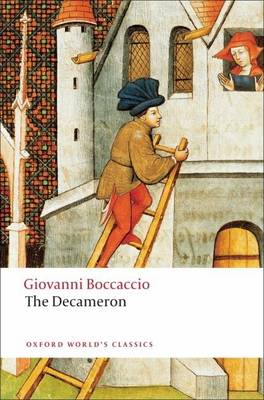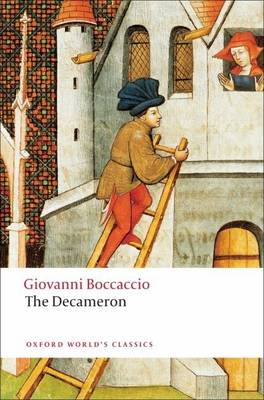
- Retrait gratuit dans votre magasin Club
- 7.000.000 titres dans notre catalogue
- Payer en toute sécurité
- Toujours un magasin près de chez vous
- Retrait gratuit dans votre magasin Club
- 7.000.000 titres dans notre catalogue
- Payer en toute sécurité
- Toujours un magasin près de chez vous
16,95 €
+ 33 points
Format
Description
The Decameron (c.1351) was written in the wake of the Black Death, a shattering epidemic which had shaken Florence's confident entrepreneurial society to its core. In a country villa outside the city, ten young noble men and women who have escaped the plague decide to tell each other stories. Boccaccio's skill as a dramatist is masterfully displayed in this virtuoso performance of one hundred tales, vivid portraits of people from all stations in life, with plots which revel in a bewildering variety of human reactions. Themes are playfully restated from one story to another within an elegant and refined framework. One of Chaucer's most fruitful sources for the Canterbury Tales, Boccaccio's work artfully combines the essential ingredients of narrative: fate and desire, crises and quick-thinking. This new translation by Guido Waldman captures the exuberance and variety and tone of Boccaccio's masterpiece. About the Series: For over 100 years Oxford World's Classics has made available the broadest spectrum of literature from around the globe. Each affordable volume reflects Oxford's commitment to scholarship, providing the most accurate text plus a wealth of other valuable features, including expert introductions by leading authorities, voluminous notes to clarify the text, up-to-date bibliographies for further study, and much more.
Spécifications
Parties prenantes
- Auteur(s) :
- Editeur:
Contenu
- Nombre de pages :
- 752
- Langue:
- Anglais
- Collection :
Caractéristiques
- EAN:
- 9780199540419
- Date de parution :
- 15-07-08
- Format:
- Livre broché
- Format numérique:
- Trade paperback (VS)
- Dimensions :
- 130 mm x 196 mm
- Poids :
- 498 g







